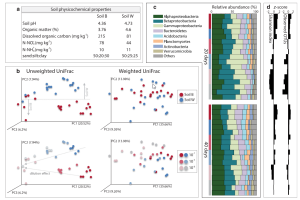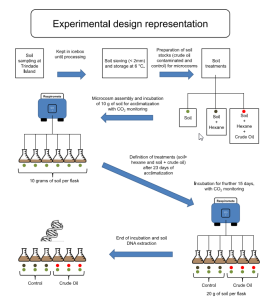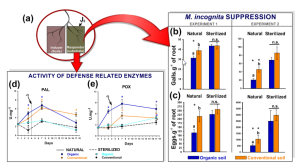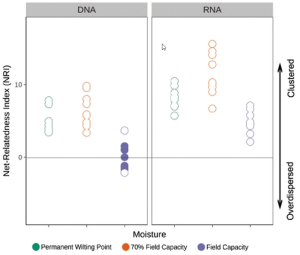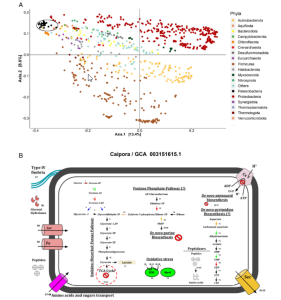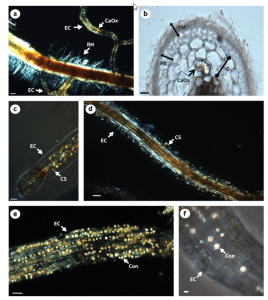Abstract
Root exudates mediate plant interactions in the environment, and they are affected by physical, chemical and biological factors. Biocontrol agents can modify root exudates and influence plant–pathogen interactions. In this study, we showed that lettuce (Lactuca sativa), a host of the root-knot nematode Meloidogyne incognita, produced root exudates that attracted the second-stage juveniles (J2s) of this nematode and garlic (Allium sativum), an antagonistic plant, produced exudates that repelled them. However, the application of a commercial product containing Bacillus subtilis on lettuce roots made the exudates repellent to J2s of M. incognita, whereas treated garlic exudates were as attractive to the J2s as untreated lettuce. The repulsive behavior of M. incognita to exudates of roots colonized by biocontrol agents is common; however, the attractiveness of treated garlic root exudates was unexpected and not previously reported for non-host plants. Chemotaxis assays also showed that the commercial formulation of B. subtilis was repellent to J2s of M. incognita. The metabolomic analysis conducted on these samples unveiled a combined total of 34 compounds. There was an elevation in the levels of amino acids and peptides in samples that were inoculated with the commercial product. Additionally, certain metabolites appear to be connected to chemotaxis. These metabolic changes induced by the commercial product are interesting for field utilization in a dual control strategy, where lettuce is protected against the nematode due to its repellence and garlic becomes attractive, but is not infected by the nematode.



